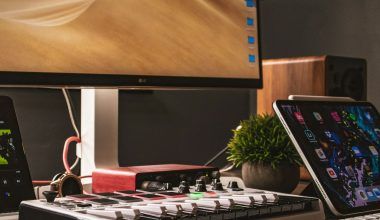Have you ever come across the term ISWC Meaning and wondered what it means? If so, you’re not alone. ISWC stands for International Standard Musical Work Code. It’s a unique identifier assigned to musical works, helping to distinguish one piece of music from another. But what does this really mean, and why is it so important? Let’s dive in and explore everything about ISWC Meaning in a simple and easy-to-understand way.
Breaking Down the ISWC Meaning
The International Standard Musical Work Code, or ISWC, is like a fingerprint for a song. It’s a special code that helps to identify a musical composition, no matter where it’s played or who’s performing it. Think of it as a way to keep track of music in a big, organized database. Every time a songwriter or composer creates a new piece of music, an ISWC can be assigned to that work. This code ensures that no two musical works have the same identifier, making it easier to manage music rights and royalties.
Why Do We Need ISWC?
You might be wondering, “Why is an ISWC necessary?” Well, music is a global language, and it’s played and shared across the world. With so many songs being created daily, it’s essential to have a system that can organize them efficiently. That’s where the ISWC comes in. It helps:
- Identify musical works accurately
- Ensure songwriters and composers get the credit they deserve
- Simplify the process of paying royalties
Imagine a scenario where a song is played on the radio or streamed online. The ISWC helps track that specific song so that the right people get paid for their work. Without it, keeping track of millions of songs would be nearly impossible.
How Does ISWC Work?
The ISWC system is straightforward yet highly effective. When a musical work is created, it’s registered with a music rights organization. This organization assigns an ISWC to the piece. The code is made up of several parts:
- A prefix (the letter “T”)
- A unique 9-digit number
- A check digit
For example, an ISWC might look like this: T-123.456.789-3. Each part of the code has a specific purpose, ensuring that every musical work can be uniquely identified.
Who Assigns ISWC?
You might be curious about who is responsible for assigning ISWCs. This task is usually handled by Collective Management Organizations (CMOs). These organizations work on behalf of songwriters, composers, and publishers to manage their music rights. When you register your musical work with a CMO, they’ll ensure it gets an ISWC. Examples of CMOs include ASCAP, BMI, and PRS for Music.
ISWC and Music Rights
Music rights can sometimes feel like a complicated topic, but the ISWC simplifies things. It’s an essential tool for protecting intellectual property. Every time a song is used commercially—whether in a movie, an advertisement, or a streaming platform—the ISWC ensures that the rightful owners are recognized and compensated.
For instance, when a song is streamed on Spotify, the ISWC helps link the play to the specific composition. This way, the royalties can be distributed accurately to the songwriters and publishers.
The Role of ISWC in Royalties
One of the most significant benefits of the ISWC is its role in managing royalties. Royalties are payments made to songwriters and composers whenever their music is played or performed. But how do you ensure that every play or performance is accounted for? That’s where the ISWC comes into play.
Imagine a song being played on multiple platforms across different countries. The ISWC acts as a universal identifier, making it easier for CMOs to track its usage. This way, the royalties can be distributed fairly to everyone involved in creating the song.
The Global Importance of ISWC
The music industry is truly global, and the ISWC helps connect the dots. Whether a song is being played in New York, Tokyo, or Paris, the ISWC ensures that it’s recognized as the same musical work. This global standardization is crucial for:
- Avoiding confusion between similar songs
- Ensuring fairness in royalty distribution
- Supporting international collaborations
Without the ISWC, the music industry would struggle to manage its vast catalog of works effectively.
How to Get an ISWC for Your Song
If you’re a songwriter or composer, you might be wondering how to get an ISWC for your work. The process is simple. First, you need to register your song with a music rights organization or a CMO. Once your song is registered, the organization will assign an ISWC to your work. It’s important to note that this process is usually free for members of these organizations.
Common Misconceptions About ISWC
There are a few misunderstandings about ISWC that are worth clearing up. For example:
- ISWC is not the same as ISRC. While the ISWC identifies a musical composition, the ISRC (International Standard Recording Code) identifies a specific recording of a song.
- ISWC doesn’t cover lyrics or arrangements. It only applies to the original composition, including melody and harmony.
- ISWC isn’t a copyright. While it helps manage music rights, it’s not a replacement for copyright registration.
Understanding these distinctions can help you make the most of the ISWC system.
Benefits of Using ISWC
The ISWC offers several advantages for everyone involved in the music industry. For songwriters and composers, it provides a clear way to track their works and earn royalties. For publishers and music rights organizations, it simplifies the management of music rights. And for listeners, it ensures that the creators behind their favorite songs are fairly compensated.
Moreover, the ISWC Meaning supports transparency in the music industry. By providing a standardized system, it helps to reduce disputes and ensures that everyone gets their fair share.
Conclusion: Why ISWC Matters
The International Standard Musical Work Code might seem like a small detail, but it plays a huge role in the music industry. By providing a unique identifier for every musical work, the ISWC Meaning ensures that songwriters and composers are recognized and rewarded for their creations. It’s a powerful tool that supports the global music ecosystem, making it fairer and more transparent for everyone involved.
Whether you’re a musician, a music publisher, or just someone who loves listening to songs, understanding the ISWC Meaning can give you a deeper appreciation for how music rights work. So the next time you enjoy your favorite tune, remember the little code that helps make it all possible.
Related Articles:
For further reading, explore these related articles:
- Nona Gaye: The Life of a Singer, Actress, and Daughter of a Legend
- The Amazing Story of Korn Band: Legends of Nu-Metal
For additional resources on music marketing and distribution, visit DMT RECORDS PRIVATE LIMITED






